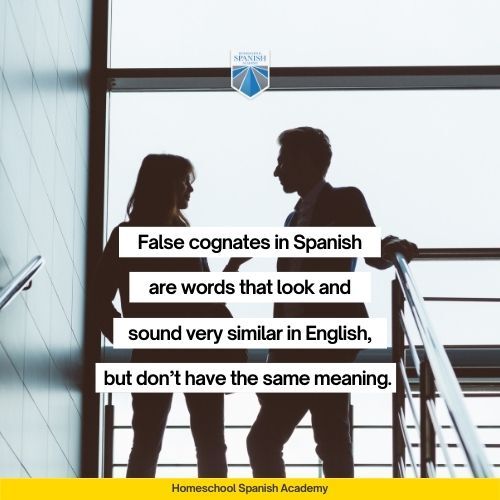
Ever heard of “false friends”? And I don’t mean the pseudo-friends you need to watch out for in your social circle. I’m referring to false cognates!
False cognates are words that look and sound very similar in two languages but don’t have the same meaning. The English-Spanish false cognates on our list are definite “conversation killers” that can hinder or entirely derail the message you’re trying to get across.
If your friend says to you: estoy constipado. Would you offer them prune juice or cold medicine?
If you’re feeling embarrassed about something silly you did, are you going to tell your Spanish-speaking friend that you’re embarazada?
This list will give you all the tools you need for smooth conversations that don’t get tripped up and weird by confusing false cognates.
Keep reading to learn more about cognates in general with useful definitions, explore our long list of the most commonly-used false cognates in Spanish, and gain the advantage of no longer confusing your listeners with false friends!
Join more than 559 million people on the planet who speak Spanish!
Sign up for your free trial Spanish class today. ➡️

According to the Cambridge Dictionary, the definition of a cognate is “a word that has the same origin as another word, or is related in some way to another word.”
Three categories of cognate exist:
It’s important to learn the difference so that you can make educated decisions on your word choice while talking to other Spanish speakers.
When the meaning, spelling, and sound is identical, as in animal and (el) animal, they’re known as perfect cognates in Spanish. The only difference is in pronunciation.
Other examples include:
A true cognate or easy cognate is a word that is “either spelled the same or similar and often sounds alike in both languages.” In other words, it’s near-perfect but not identical.
Think of “action” in English and acción in Spanish.
Both words have similar sound and spelling and they (generally) have the same meaning (acción does mean “action,” but it can also mean “stock” or “share” in financial terms).
Other examples include:
And finally, we have the false cognates in Spanish, which are deceptive for appearing to be the same, but have unexpectedly different meanings.
The following 55 most commonly-used false cognates are essential learning for your Spanish studies. Instead of trying to memorize a giant list, go ahead and print this out for later use or enter them into a flashcard app you use to learn with a spaced repetition schedule.

English word: Actual
Spanish translation: Exacto, real
The actual translation is different.
La traducción exacta es diferente.
Spanish word: Actual
English translation: Current
Este es mi número actual.
This is my current number.
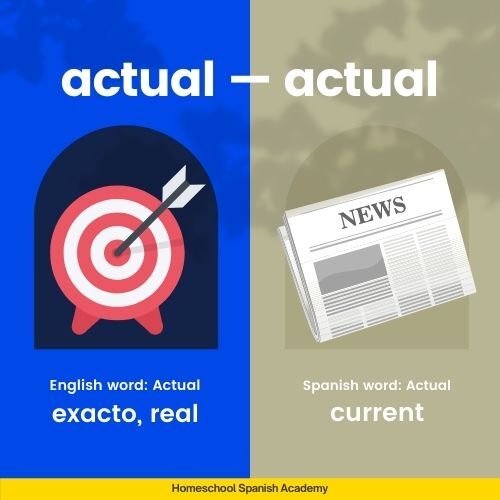
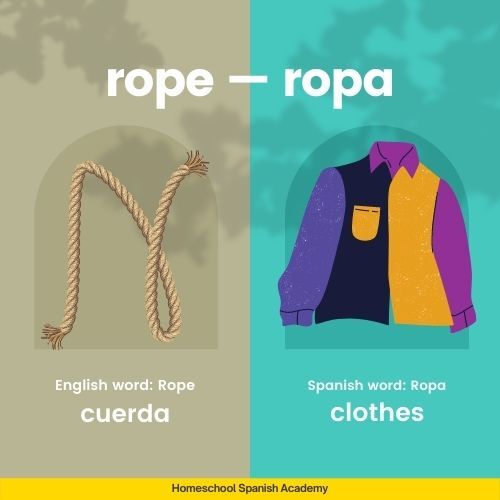
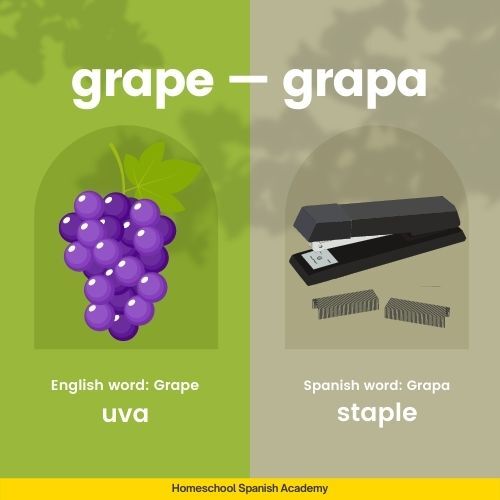
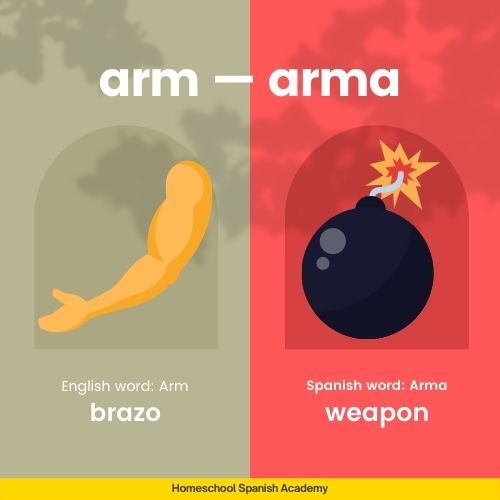
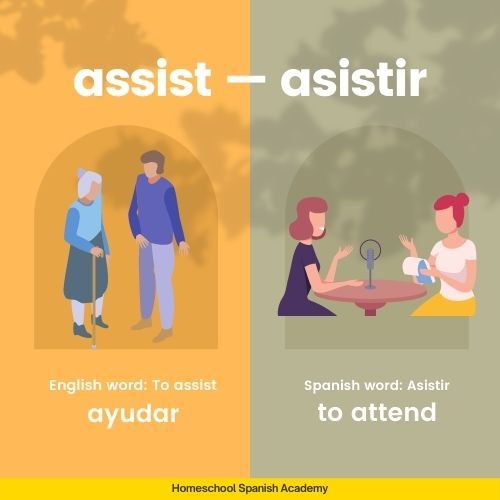
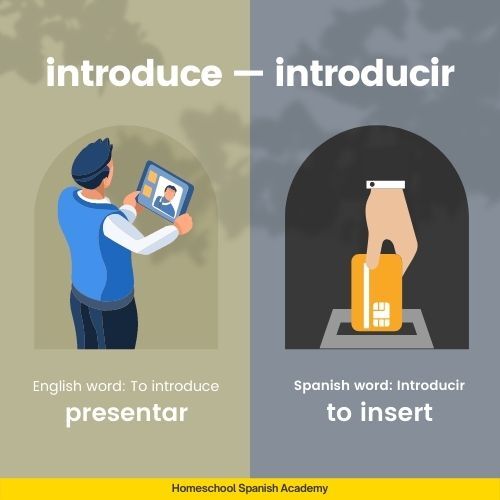
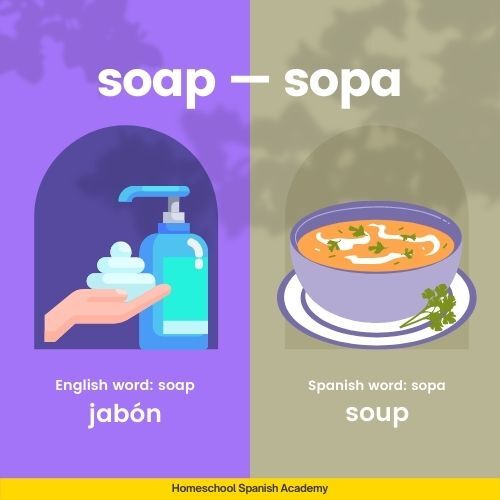
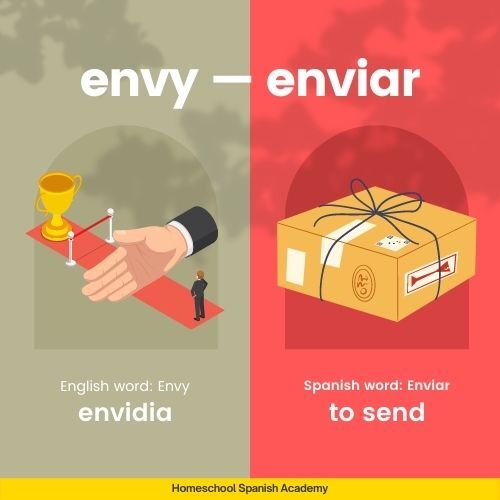
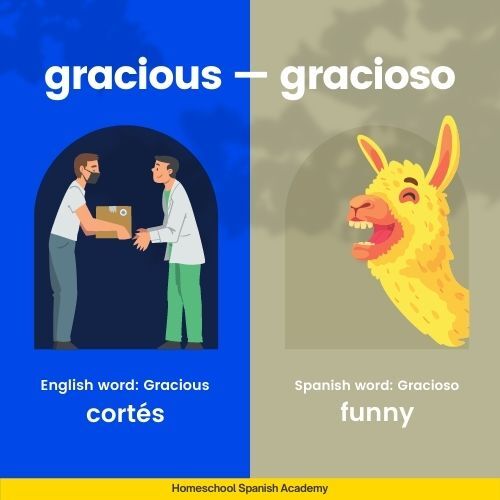
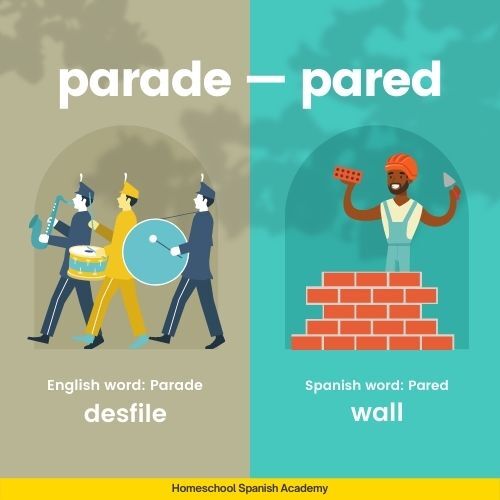
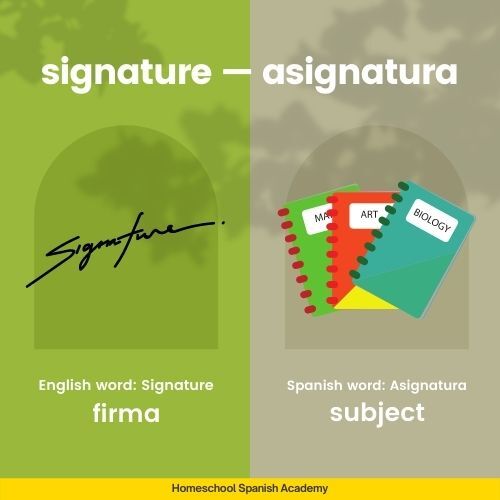
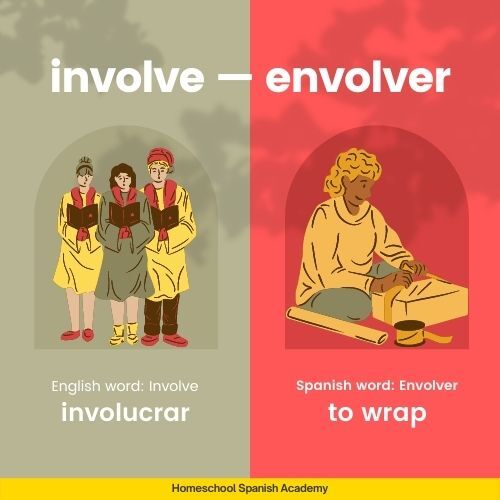
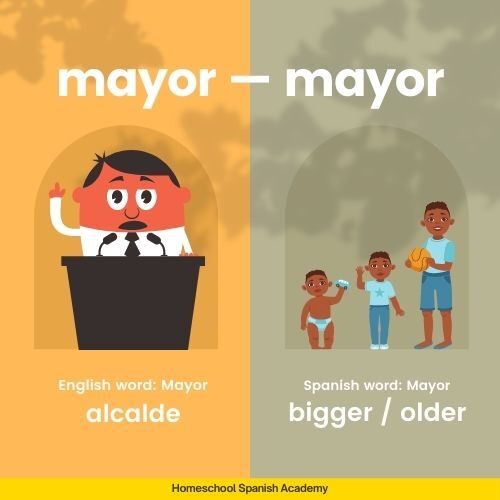
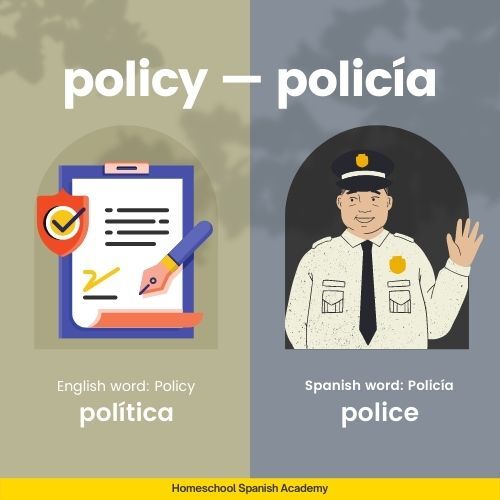
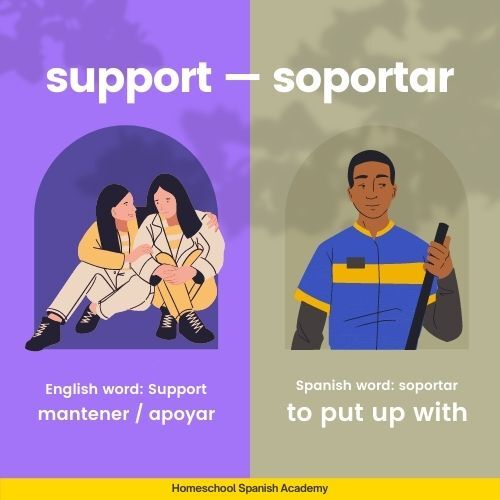
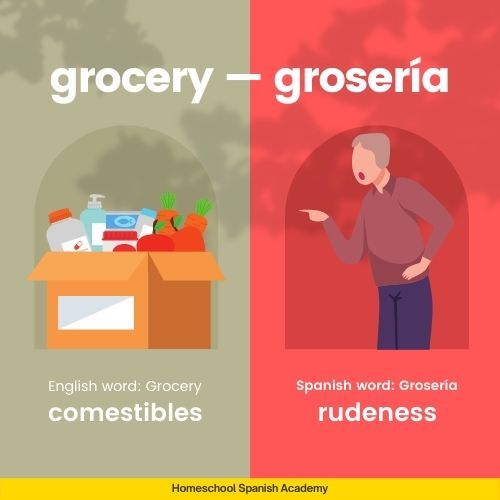
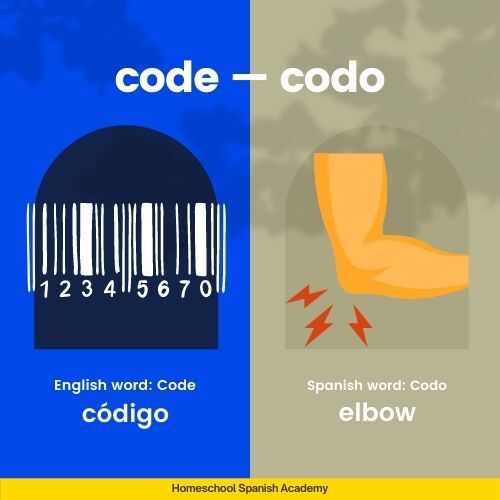
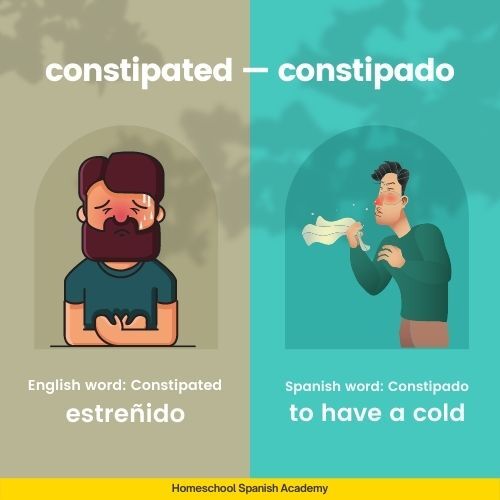
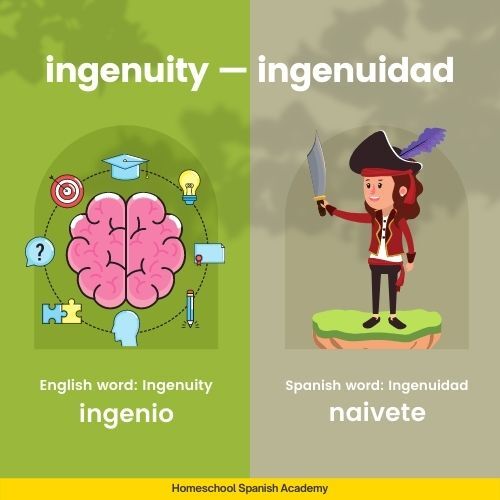
By learning Spanish, you’re opening your world to talk to more people, as there are 41 million native Spanish speakers in the US—and knowing how to use true and false cognates correctly helps you to connect better during conversations, while you face fewer issues from the language barrier.
Learning these false cognates in Spanish will not only save you from many embarrassing situations, but enhance the quality of your communication!
Do you want to try speaking Spanish in real-time with a real person? Sign up for a free trial class with one of our certified, native Spanish speaking teachers from Guatemala. We teach over 24,000 actively enrolled students every month, offer flexible scheduling, and student-tailored Spanish programs.
Don’t forget! Make sure to download the list PDF of Spanish-English false cognates and study them at home to keep improving your Spanish.
Ready to learn more Spanish grammar? Check these out!
Luis F. Domínguez is a freelance writer and independent journalist interested in travel, languages, art, books, history, philosophy, politics and sports. He has written for Fodor’s, Yahoo!, Sports Illustrated, Telemundo, and Villa Experience, among other brands of print and digital media in Europe and North America.
Latest posts by Luis F. Dominguez (see all)